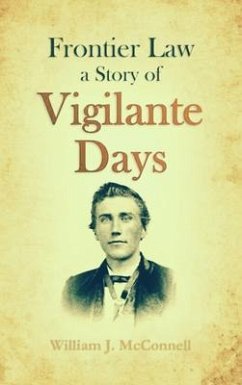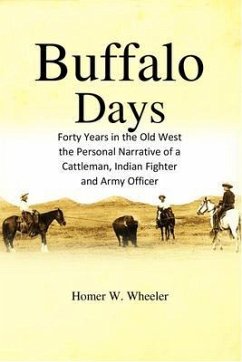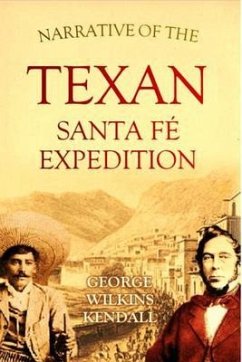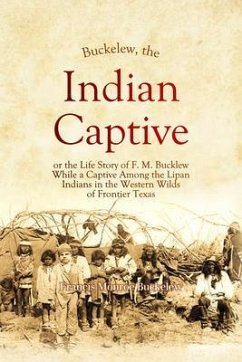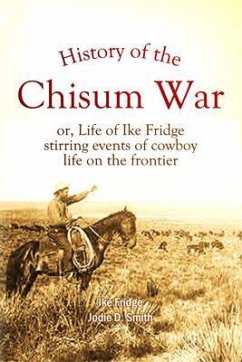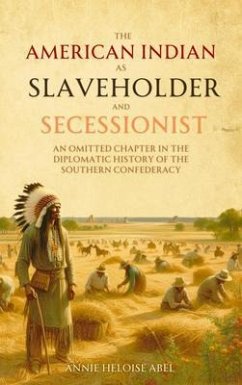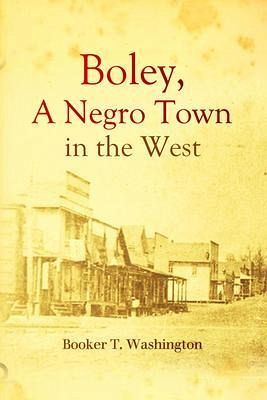
Boley, a Negro Town in the West (eBook, ePUB)

PAYBACK Punkte
1 °P sammeln!
"Booker T. Washington called Boley 'the most enterprising and in many ways interesting Negro town in the United States' when he visited the town back in its early years." -The Daily Oklahoman, July 27, 2008"Booker T. Washington...visited twice and even submitted a positive article on the town to Outlook Magazine in 1908." -McIntosh County Democrat." -July 4, 2013"Many of the citizens of Boley were in Guthrie...to meet Dr. Booker T. Washington...he was greatly interested in Boley and he approved of the spirit in which the town is being built...said further that he would in the near future arran...
"Booker T. Washington called Boley 'the most enterprising and in many ways interesting Negro town in the United States' when he visited the town back in its early years." -The Daily Oklahoman, July 27, 2008
"Booker T. Washington...visited twice and even submitted a positive article on the town to Outlook Magazine in 1908." -McIntosh County Democrat." -July 4, 2013
"Many of the citizens of Boley were in Guthrie...to meet Dr. Booker T. Washington...he was greatly interested in Boley and he approved of the spirit in which the town is being built...said further that he would in the near future arrange to visit Boley." -The Weekly Progress (Boley, Okla.), Nov. 23, 1905
Why did former slaves of the Muscogee Creek tribe in Oklahoma, who were emancipated under the tribe's 1866 treaty with the United States following the American Civil War, decide to create a new town in Oklahoma which became known as Boley?
In 1905, when Booker T. Washington visited Indian Territory (now Oklahoma) he made a specific point to visit Boley which he had heard about. He would later write:
"I learned upon inquiry that there were a considerable number of communities throughout the Territory where an effort had been made to exclude negro settlers. To this the negroes had replied by starting other communities in which no white man was allowed to live. But among these various communities there was one of which I heard more than the others. This was the town of Boley, where, it is said, no white man has ever let the sun go down upon him."
In 1908, Booker T. Washington would publish an 8-page article in the magazine New Outlook, titled " Boley, a Negro Town in the West," reprinted here.
About the author:
Booker T. Washington was born April 5, 1856, and died November 14, 1915. He was an American educator, author, orator, and adviser to several presidents of the United States. Between 1890 and 1915, Washington was the dominant leader in the African American community and of the contemporary black elite. Washington was from the last generation of black American leaders born into slavery and became the leading voice of the former slaves and their descendants. They were newly oppressed in the South by disenfranchisement and the Jim Crow discriminatory laws enacted in the post-Reconstruction Southern states in the late 19th and early 20th centuries.
"Booker T. Washington...visited twice and even submitted a positive article on the town to Outlook Magazine in 1908." -McIntosh County Democrat." -July 4, 2013
"Many of the citizens of Boley were in Guthrie...to meet Dr. Booker T. Washington...he was greatly interested in Boley and he approved of the spirit in which the town is being built...said further that he would in the near future arrange to visit Boley." -The Weekly Progress (Boley, Okla.), Nov. 23, 1905
Why did former slaves of the Muscogee Creek tribe in Oklahoma, who were emancipated under the tribe's 1866 treaty with the United States following the American Civil War, decide to create a new town in Oklahoma which became known as Boley?
In 1905, when Booker T. Washington visited Indian Territory (now Oklahoma) he made a specific point to visit Boley which he had heard about. He would later write:
"I learned upon inquiry that there were a considerable number of communities throughout the Territory where an effort had been made to exclude negro settlers. To this the negroes had replied by starting other communities in which no white man was allowed to live. But among these various communities there was one of which I heard more than the others. This was the town of Boley, where, it is said, no white man has ever let the sun go down upon him."
In 1908, Booker T. Washington would publish an 8-page article in the magazine New Outlook, titled " Boley, a Negro Town in the West," reprinted here.
About the author:
Booker T. Washington was born April 5, 1856, and died November 14, 1915. He was an American educator, author, orator, and adviser to several presidents of the United States. Between 1890 and 1915, Washington was the dominant leader in the African American community and of the contemporary black elite. Washington was from the last generation of black American leaders born into slavery and became the leading voice of the former slaves and their descendants. They were newly oppressed in the South by disenfranchisement and the Jim Crow discriminatory laws enacted in the post-Reconstruction Southern states in the late 19th and early 20th centuries.
Dieser Download kann aus rechtlichen Gründen nur mit Rechnungsadresse in A, D ausgeliefert werden.




